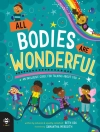Is the human eye like a camera? What makes your ears ‘pop’ on a plane? Why did women in the Middle Ages put belladonna into their eyes?
This fully updated 2nd edition of Sensation and Perception is an accessible introduction to the field of perception. It covers in detail the perceptual processes related to vision and hearing, taste and smell, touch and pain, as well as the vestibular and proprioceptive systems. From seeing in colour to pathologies of perception, and from recognising faces to research methods, this textbook is essential reading for any student of perception.
New material includes:
· ‘Applications’ features connect key content to real-life contexts
· Thinking Critically feature pushes students beyond the basics
· End-of-chapter essay questions
· An entirely new chapter on Action & Perception
John Harris is Emeritus Professor of Psychology at the University of Reading
Jared Smith is Senior Research Fellow at the Population Health Research Institute of St George’s, University of London
Table des matières
PART I: Foundations and Investigative Techniques
Chapter 1: The Nature of Perception, and Some Ways of Investigating It
Chapter 2: Research Methods in Perception
PART II: Visual and Auditory Perception
Chapter 3: Mechanisms of Early and Middle Visual Processing
Chapter 4: Seeing in Colour
Chapter 5: Seeing Pattern and Motion
Chapter 6: Hearing
PART III: The Chemical Senses and Somatosensory Perception
Chapter 7: Taste and Smell
Chapter 8: Touch and Pain
Chapter 9: Vestibular and Proprioceptive Systems
PART IV: Perceiving the World Around Us
Chapter 10: Visual and Auditory Localisation
Chapter 11: Perception and Action
Chapter 12: Eye Movements and Perception of Natural Scenes
Chapter 13: Recognising Faces
Chapter 14: Attention and Awareness
PART V: Changes in Perception
Chapter 15: Changes in Perception Through the Life-span
Chapter 16: Pathologies of Perception
A propos de l’auteur
Dr Jared Smith is a research fellow in mental health at St George′s.His major areas of interest are health science, behavioural medicine, and neuropsychology. Specifically, Dr Smith investigates cognitive, learning, and behavioural processes in people with clinical and/or neurological disorders, and the extent to which these processes impact on daily function and are affected by treatments including psychological-based interventions. More generally, he is interested in research involving clinical and neurological rehabilitation, especially in regard to providing evidence-based healthcare for these populations in the form of effective treatments and rehabilitation methods.Dr Smith’s current projects involve investigating: predictors of successful outcome of pain management interventions for people with chronic pain – including the influence of neurocognitive function; the benefits of pain management approaches for people with sickle cell disease; the psychosocial burden of surgically-induced nerve injury; the detection of non-credible complaints in clinical populations; and the feasibility of a navigation approach to care coordination for people with severe mental illness.












